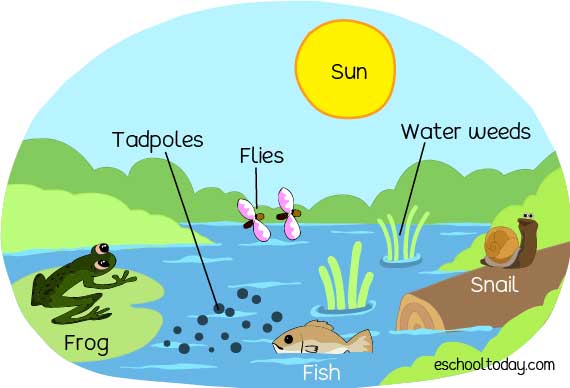- Ecosystems
What is an Ecosystem?
An ecosystem includes all of the living things (plants, animals, and organisms) in a given area, interacting with each other, and also with their non-living environments (weather, earth, sun, soil, climate, atmosphere). Ecosystems are the foundations of the Biosphere, and they determine the health of the entire earth system.
Ecosystem simply means “Ecological Systems”. Ecology is the study of ecosystems.
In an ecosystem, each organism has its own niche or role to play.
Consider a small puddle at the back of your home. In it, you may find all sorts of living things, from microorganisms to insects and plants. These may depend on non-living things like water, sunlight, turbulence in the puddle, temperature, atmospheric pressure, and even nutrients in the water for life. (Click here to see the five basic needs of living things)

This very complex interaction of living things and their environment has been the foundation of energy flow and recycling of carbon and nitrogen.
Anytime a ‘stranger’ (living thing(s) or external factor such as a rise in temperature) is introduced to an ecosystem, it can be disastrous to that ecosystem. That is because the new organism (or factor) can distort the natural balance of the interaction and potentially harm or destroy the ecosystem.
Usually, biotic members of an ecosystem, together with their abiotic factors depend on each other. That means the absence of one member or one abiotic factor can affect all parties of the ecosystem.
Unfortunately, ecosystems have been disrupted, and even destroyed by natural disasters such as fires, floods, storms, and volcanic eruptions. Human activities have also contributed to the disturbance of many ecosystems and biomes.
Ecosystem goods and services
It is the extremely vital life-support services ecosystems provide to human life, its well-being, and future economic and social development. For example, the benefits ecosystems provide include food, water, timber, air purification, soil formation, and pollination.
